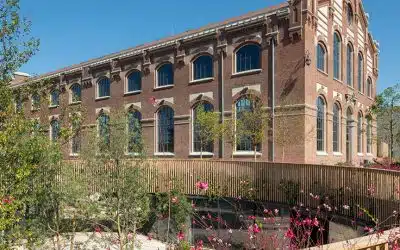“We do not rule out agreements, but they need to be complementary”

Redacción Mapfre
Asset management has become a very important area in the insurance group in recent years, according to Mapfre AM CEO Álvaro Anguita, CEO of Mapfre AM, who manages around 40 billion in assets and has a team of more than 100 people, in an interview with FundsPeople. “Mapfre is firmly committed to asset management. We offer transversal management, which we apply to the entire group and all types of third-party portfolios, demonstrating the alignment Mapfre’s interests with those of its clients,” he said.
They want to continue to grow in mutual funds, pensions, as well as in discretionary management contracts outside the group. “But we don't want to grow haphazardly or at any cost,” Anguita noted. In that sense, he admitted: “We don't rule out agreements, but we want them to be complementary,” seeking out added value in terms of management and distribution capabilities.
His plans also include continuing to work towards complementary social welfare. “As an insurance group, retirement savings will continue to be one of our main activities,” he stated. Of the total managed by the company, some 3.2 billion are in pensions and EPSVs, of which 2.35 billion are individual pension plans and 850 million in occupational plans. To put the total volume of assets under management into context, an additional 3.9 billion are in collective investment schemes (funds and sicav), of which 1.3 billion are in Luxembourg. But the core is the group's discretionary portfolio management, where it has 33 billion.
In the pensions area, Anguita is critical of the recent tax changes announced by the government, which lowered the maximum tax deductions for individual plans this year from 8,000 to 2,000 euros, and has now reduced them again to 1,500 euros by 2022. In parallel, it has transferred these incentives to employment plans, where the maximum limit to be deducted would be raised to 8,500 euros.
The expert considers it “essential” to complement the public pension system with private savings. “We believe in the second and third pillars, but the focus cannot be placed only on employment plans,” he asserted. Although he values positively the Government’s intention to create a Public Employment Pension Fund, he advised that “tax incentives should be given to companies so that it really succeeds.” In addition, it would be very positive to introduce a default subscription system, among other requirements.
Strategies
At the product level, Mapfre has two strategies. First, sustainability, “where it wants to be a leading ESG manager,” according to Anguita. To this end, it is focusing its products there, both in pensions and investment funds. Although it is not something new for the company, which has been championing the importance of corporate social responsibility for decades, in 2017 the manager signed the PRIS and bought 25% of the specialist French management company La Financière Responsable (LRF), which has its own methodology in ESG. Although the first products that met these criteria were launched as investments, shortly afterwards it was replicated for the Group's pension plans.
Mapfre’s second commitment in pensions are life-cycle products: “Two years ago we created the Tu Futuro program, for managing pension fund portfolios,” Anguita stated. This is a solution that automatically adjusts each client’s retirement savings to their own risk profile and age. And this changes over the course of the client's life. They replicated this strategy last year for EPSVs as well. And this year, they launched a jointly promoted employment plan for all types of companies, with a special focus on SMEs and the self-employed, which also incorporates management based on the life cycle of the participants. “Our experience with the life cycle is very good. Beyond a product, we provide investment solutions for our clients,” he said.
Alternative assets
But in recent years Mapfre has also remained firmly committed to alternative assets. In this respect, it has entered into various partnerships. It made its debut in the real estate market in 2018 together with GLL, from the Macquarie group. Later, in 2019, it reached an agreement with Swiss Life to create an investment vehicle in the real estate market. And this year it gave a boost to the partnership with the creation of a joint venture.
In infrastructure, Mapfre and Abante launched an infrastructure fund in 2020 through Macquarie. Meanwhile, in private equity, it has a partnership with Altamar, with which it has also developed a product.
“As very conservative investors, we believe that a well-managed alternative investment has significant returns, and we do not have to assume excessive risk,” he reasoned. The pension funds already include several alternative investment funds in their portfolios. And now they are finalizing the launch of a private-debt fund, a strategy they want to channel into a single product to offer it to our pension funds and also to the group's portfolios under these discretionary management contracts.



